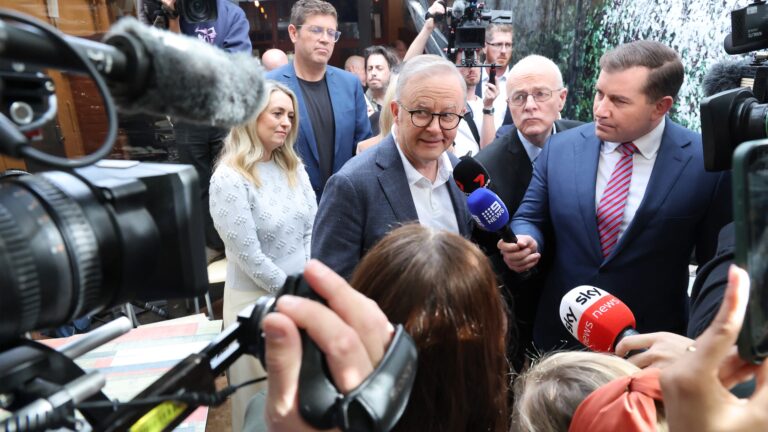Like it or not, Facebook is an unavoidable component of our every-day life. It is hard to ignore that it has overgrown its original functions, and today it has an effect not only on its users, but, indirectly, on the whole society, since it spreads messages across the full spectrum of life. As a result of this omnipotent power, it can influence votes, stock exchange rates, and the way of thinking of entire generations. Although it does have a public moderation policy, it is far from being impartial. Most of us can corroborate this with numerous recent examples of Hungarian politicians’ profiles being suspended by the tech giant.
The question arises in most of us: should we tolerate it that unknown businessmen in foreign countries control our lives, and regulate what we can think and tell our friends or followers? The answer is of course not, but what we can do? Facebook is a private company, owned by foreign individuals. Is there any chance for a state to have influence on a tech giant? Fortunately, there are examples from the recent past that the situation is not hopeless.
These data are not safe with Facebook as after AI supported processing, it turns the data into high quality intelligence
Day by day, more and more countries express their concerns about the Facebook, Instagram, and WhatsApp media empire’s almighty influence, and seek answers and solutions to curb it. It is especially the business and national security aspects that are the most concerning, given that this empire rules the biggest part of mobile advertising, and it possesses an enormous amount of information about its users, including their most sensitive data, which is unprecedented in history. These data are not safe with Facebook as after AI supported processing, it turns the data into high quality intelligence. It is scary that only a handful of prominent insiders are aware of where this intelligence ends up. That is the reason, among others, why countries like Russia and Turkey forced Facebook to store the user data of their own citizens’ physically in their own territory. China and Russia also realized the national security risk posed by Facebook and its associated applications, and built their own social media networks that we know by the name of WeChat, and VKontakte.
The Bundeskartellamt[1] has labelled ‘exploitative abuse’ the way Facebook combines the user data of the three applications making use of its dominant position. The global nature of the Internet and the simplicity of the usage of these applications is the trap that catches citizens and feeds this tech giant.
According to some experts, the solution with regard to Facebook as a business is forcing Facebook to sell the other two social network apps in order to neutralize its monopoly. I tend to agree with the Australian Competition and Consumer Commission that has a different point of view. In their opinion, Facebook is a vertically integrated business, which means that they control different parts of the advertisement industry. In fact, it is a social media network, a media distribution enterprise, a media buying company, an advertising exchange, and a data analytic organization in one. That is the reason why a structural break up seems the only powerful solution.
Beside the economic monopoly and national security worries, politicians also have concerns about Facebook’s impact on democracy. Parliamentarians from numerous countries (Argentina, Canada, Chile, Estonia, Germany, Ireland, Singapore, Ecuador, Mexico, Morocco, Trinidad and Tobago, and the UK) formed an International Grand Committee and regularly meet in order to discuss their social media, especially Facebook, related concerns.[2]
Facebook has been hit many times with huge amounts of fines for privacy data violations but the billions paid didn’t shake the empire. According to open sources, in the three months between March and June 2019, Facebook made 16.6 billion USD from advertising alone, so the fines are just a drop in the bucket.
The fight against Facebook may seem hopeless, but in fact, it isn’t. The Turkish Media Law is a very good example for those countries that don’t want to put up with this situation.
Such providers are required to delegate at least one person as their representative in Turkey, and store the Turkish users’ data physically in the country
Regulation of the Internet is not new in Turkey: it reaches back a decade. Law No. 5561, titled the Law on Regulation of Publications on the Internet and Suppression of Crimes Committed by Means of Such Publications, was approved in 2007 and amended on 31 July 2020 by Law No. 7253. that entered into force on 1 October 2020. [3] The Law defines the category of social network providers and their obligations if they have more than one million Turkish subscribers. Such providers are required to delegate at least one person (not a legal one) as their representative in Turkey, and store the Turkish users’ data physically in the country. They are also supposed to reply within 48 hours to the applications that are made pursuant to Articles 9 and 9/A of the Law No. 5561. According to the Law, the company is held liable for damages if the objected content is not removed or blocked within 24 hours. Social network providers not complying with the requirements are subject to a set of sanctions, ranging from administrative fines of 100.000 to 1.000.0000 Turkish liras (TRY) to the narrowing of the bandwidth of Internet traffic by 90 % and to advertising bans.[4]
Turkish authorities fined Facebook at least $5.3 million (40 million TRY) last year for not complying with the obligation to delegate a representative.[5] The efforts made by the Turkish lawmakers have born fruit and a Facebook representative appeared before the parliamentary media committee last month. Azzam Alameddim, the company’s director of public policy covering the Middle East, North Africa and Turkey, told the committee that the company is always open to negotiations with the public and the authorities. He emphasized that the company treats user safety, the freedom of expression and the interest of the country as a priority wherever it operates. He said: ‘We are always trying to strike a balance between security and freedom. Meta is not something supranational. It is impossible for us to consider ourselves superior to you.’ [6]
Although the law in question is not targeted specifically at Facebook, since Turkey has been working on its Internet and social media regulation for years, this legislation is a very important step ahead to curb the power of social media providers. The ruling Justice and Development (AKP) Party is composing a draft law on fake news and disinformation online. Unnamed officials have leaked some details to the press of the proposal, in which disinformation and misinformation are an offense, and which says that for spreading false or fake news on social media, the perpetrator can be sentenced to up to five years’ imprisonment.
We all know that from some respects, a law is like a weapon that can be used for noble or for vile and selfish purposes. That is why journalists and media experts have raised concerns about the proposal, demanding that the authorities make their plans public, and warning against equivocally worded regulations that could be used to persecute journalists.
It is not our job to evaluate and judge the Turkish internet legislation, but we must acknowledge that their example can be followed. The lesson to learn from their Internet and social media regulation is that big tech giants are not omnipotent and can be forced into cooperation in a legal way.
[1] German Cartel Authority
[2] https://theconversation.com/the-fightback-against-facebook-is-getting-stronger-124120
[3] https://www.resmigazete.gov.tr/eskiler/2020/07/20200731-1.htm
[4] https://www.trtworld.com/turkey/turkish-parliament-passes-social-media-bill-38488
[5] https://www.trtworld.com/turkey/facebook-says-it-respects-turkey-s-national-interests-51360
[6] https://www.trtworld.com/turkey/facebook-says-it-respects-turkey-s-national-interests-51360








